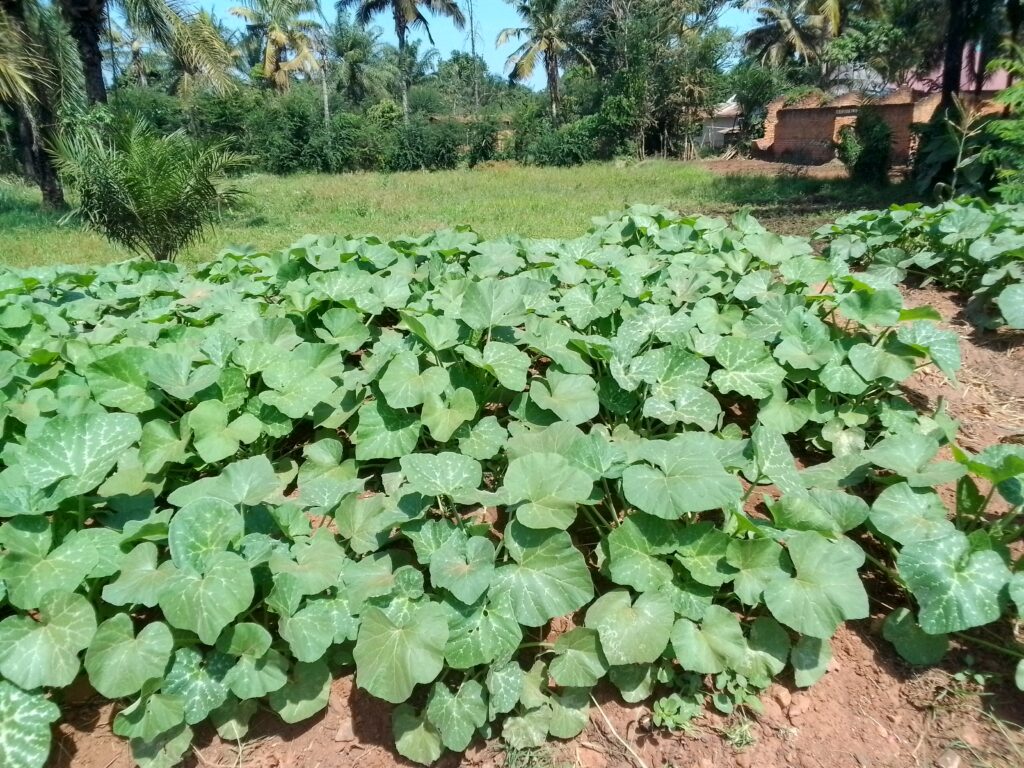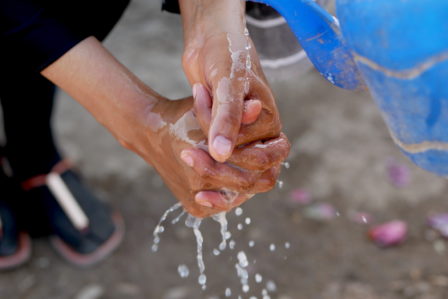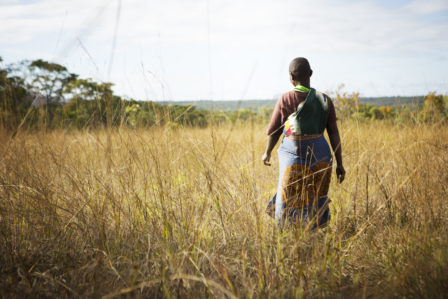We know that living without safe access to water, sanitation and hygiene facilities can cause major health issues, as well as risk, anxiety, economic and psychosocial stress.
Increasingly, funders are asking practitioners and researchers working for photos to amplify this important message – but it can be a struggle to ethically take photos of WASH issues that represent the complexity of the reality and the human experience.
These issues deal with difficult, hidden and taboo areas of life, which people don’t really want to talk about, let alone look at. They can also deal with seemingly mundane issues which people can overlook as unimportant.
More often than not, practitioners and researchers end up with photos of taps and toilets, losing the human experiences beyond the physical infrastructure.
But it can be very powerful for people to hear about, see and feel moved by unpleasant WASH challenges if they are communicated in a respectful way. This is where the creativity encouraged by participatory visual methods can provide useful principles to follow.
This training offers participants new approaches and insights that they can use to tell more compelling and respectful stories that amplify the messages needed to achieve water, sanitation and hygiene for all.
This online training course is offered through the Institute of Development Studies short course programme.
Please note: this course is running on three separate dates. Please specify which date you wish to enrol on when booking:
- June course: 10th, 12th, 17th, 19th June (9am – 12pm UK time)
- July course: 8th, 10th, 15th, 17th July (1pm – 4pm UK time)
- August course: 5th, 7th, 12th, 14th August (9am – 12pm UK time)
Course aims
To equip individuals and organisations to take respectful, ethical photos that represent the complex realities of WASH issues.
Who should attend?
Practitioners working in the areas of water, sanitation and hygiene who are interested in using photos in their communications, research or advocacy work.
This may include researchers, communications officers, programme managers, funders, monitoring, evaluation and learning (MEL) specialists and others.
How you will learn
You’ll learn through a mixture of presentations, group discussion and individual homework tasks.
The homework will include taking photos on chosen themes (you can see some examples from the previous course in this blog). We will draw on the Photovoice method and structure our live sessions around “photo dialogues” where we will explore the photos taken.
The course will include:
- a grounding in visual literacy – how photos can be ‘read’ and interpreted as positive and negative
- the importance of caption-writing
- an exploration of GEDSI (gender equality, disability and social inclusion) principles.
We will also provide a reading list, workbook with accompanying exercises, and facilitation notes so you can cascade the learning to your colleagues.
Learning outcomes
At the end of the course, participants will:
- Recognise the value and have deeper insight into imagery (photographs in particular) as an important medium for equity and inclusion in WASH.
- Have strengthened skills to take WASH-related photos that ‘do no harm’, with the potential to support and amplify the agency of marginalised people and communities.
- Be equipped to adapt and replicate this training with their colleagues.
Participant testimonial
We have invited one of our participants, Alpha Ntayomba from Population Development Initiative, to share his reflections, along with an example photos and caption he produced during the trial course we delivered in July 2023. (You can see more examples in our recent blog: The ethics of using photos in the WASH sector)
‘It was an amazing opportunity to learn how we may advance our water and sanitation advocacy services in Kigoma region, Tanzania through visual communications. I had a chance to learn with colleagues from other countries effective and professional visual communication which may receive larger audiences and influence actions from duty bearers. I was impressed the interactions and sharing our photos followed by constructive comments from trainers and colleagues which played a vital role in the way we take and use our photos for learning, sharing our work or advocacy.
I shared the lessons with my colleagues at PDI especially the Advocacy and Communications Unit which now utilise the skills and knowledge gained in our pilot programs of promoting responsible mining among mining communities in Geita District, Tanzania and Social Accountability Monitoring for improved water and sanitation services in Kigoma-Ujiji municipality in Tanzania.
We are grateful to Sanitation Learning Hub for this learning opportunity which added value in the way we use visual communications for our advocacy work.’
By Alpha Ntayomba, Population Development Initiative
Theme: Your favourite colour
Title: A home garden for nutrition and income generation at Katubuka Street in Kigoma town, Tanzania.
Caption: Green is my colour. Professionally I am a forester. I like forestry and the environment. When I took this I was thinking about what the environment can bring, generating income for people, being a source of economic activities. It’s true that there is no water scarcity here. Beyond those coconut trees in the background there is a pond. Previously there were sanitation campaigns because people were defecating there by the pond. But when the government and agents of change came together, people changed their behaviour and stopped going to the pond to defecate. So, different intervention campaigns stopped open defecation in this area. The photo is about the environment and what people can get from the environment, but also about how people can work together to change behaviour.
Course facilitators
Our course facilitators for “Using ethical images in the WASH sector” are Alice Webb and Ruhil Iyer from the Sanitation Learning Hub.
Alice Webb is an experienced communications and knowledge professional with a strong interest in participatory methods. She has provided the Sanitation Learning Hub with strategic communications support for four years. She is a trained Photovoice facilitator and has a wealth of experience in designing and running training sessions for IDS projects.
Ruhil Iyer is an experienced researcher specialising in sanitation and hygiene and participatory approaches. She has led the Sanitation Learning Hub’s work on climate change and written extensively on inclusion within WASH programmes. Together Alice and Ruhil have a wealth of subject knowledge and a deep understanding of the principles behind communicating difficult topics in a respectful and ethical manner.
Ruhil and Alice would like to thank Elaine Mercer who was instrumental in the design of the course and the delivery of our trail version in July 2023.
How to register and more information
This course is open to anyone working in the water, sanitation and hygiene sector, with any level of subject knowledge.
The course is taught in English.
You will need an internet connection sufficient to stream live video (Zoom, Facetime or similar) in order to engage fully with the course. Participants will also need to have a device that takes photos, and be able to transfer those photos to the internet.
Course fee: £630. There is a 10% early bird discount for anyone who is accepted and makes payment by Monday 11 March. There is also a 10% discount for group bookings of 3 or more people. Once you have received confirmation that your application has been approved, the fee must be paid in full to secure your place on the course.
To organise paying in monthly instalments, please email [email protected]. Please note that you will need to have paid the final amount by the start of the course, so please contact us as soon as possible ahead of the course start date to arrange this.
Before applying to this course please read the IDS short course booking Terms and Conditions (pdf) and IDS Code of Conduct (pdf).
The application procedure is a three-stage process:
Stage 1: Apply by completing the online application form. Deadline for applications are as follows:
- June course: 4pm GMT on Monday 20 May 2024.
- July course: 4pm GMT on Monday 17 June 2024.
- August course: 4pm GMT on Monday 15 July 2024.
Stage 2: Make a payment via the application form.
Stage 3: Once fees have been received, you will be sent confirmation of your place on the course.
To register your interest in future sessions, please contact [email protected].
Register here







